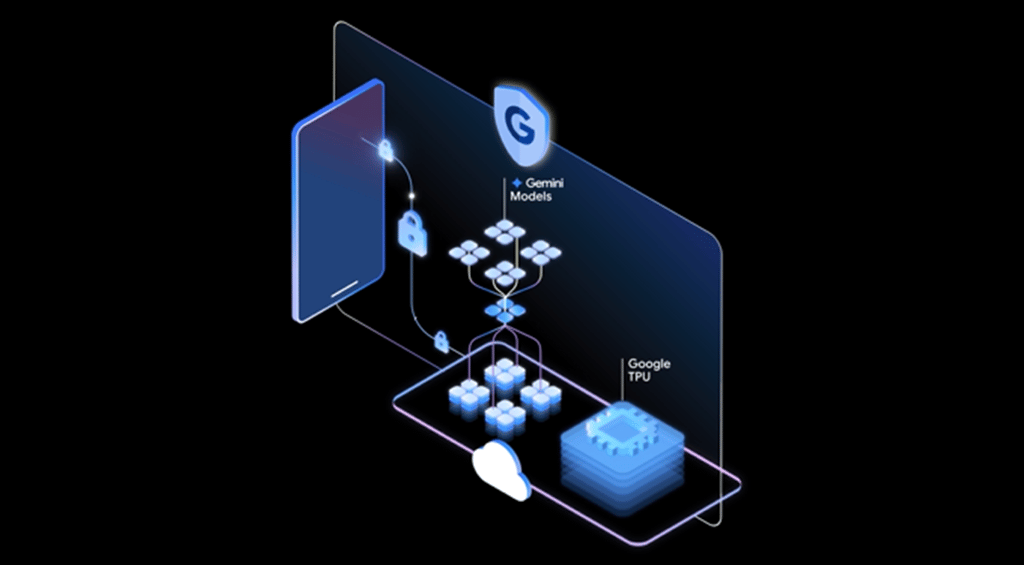Datamation content and product recommendations are
editorially independent. We may make money when you click on links
to our partners.
Learn More
Alibaba Cloud is one of the fastest-growing cloud computing companies in the world. Yet it’s a cloud provider that you might know very little about.
In its most recent quarterly financial statement, China’s Alibaba reported that its cloud computing revenue increased 103 percent year-over-year to reach 4.4 billion yuan ($699 million). According to Synergy Research Group, Alibaba Cloud is the world’s fifth largest provider of infrastructure as a service (IaaS), platform as a service (PaaS) and hosted private cloud services with 4 percent of the market. Other analysts have said that the company is the third largest IaaS vendor on the planet. And by all accounts, it is the undisputed cloud computing leader in China.
Cloud Storage and Backup Benefits
Protecting your company’s data is critical. Cloud storage with automated backup is scalable, flexible and provides peace of mind. Cobalt Iron’s enterprise-grade backup and recovery solution is known for its hands-free automation and reliability, at a lower cost. Cloud backup that just works.
SCHEDULE FREE CONSULT/DEMO
Of course, Alibaba Cloud has a long way to go to catch Amazon Web Services (AWS) and Microsoft Azure. Those two firms accounted for 33 percent and 13 percent of the public cloud market, respectively, according to Synergy. However, Alibaba’s growth curve is impressive, and analysts have noted that the company has many similarities to AWS. In fact, many news reports even refer to the company as the “Amazon of China,” for some good reasons.
Like Amazon, Alibaba is primarily an ecommerce company. Its cloud computing business grew out of the IT infrastructure it built to support its online retailing business. And Alibaba’s business strategy is also very similar to Amazon’s.
“In many ways Alibaba is mirroring Amazon – but just trailing it by a few years,” John Dinsdale, chief analyst and research director at Synergy Research Group, said in an email. “Its revenue is growing in leaps and bounds. It has to have a large and rapidly growing data center infrastructure to support its core businesses. It is leveraging that infrastructure to launch and aggressively grow public cloud services. It is choosing to use large portions of its cash flow to fund aggressive growth in capex.”
He added, “In the cloud market, Alibaba remains a long, long way behind Amazon, but there is no doubt that Alibaba is a serious cloud provider that will continue to grow its presence in the market.”
That growth alone is plenty of reason for IT professionals to get to know Alibaba Cloud.
Alibaba Cloud: Background
Alibaba Cloud (also known as Aliyun and Ali Cloud) is a subsidiary of Alibaba Group Holding Limited, a multinational corporation headquartered in Hangzhou, China. Founded in 1999, Alibaba Group began as a Web marketplace called Alibaba Online. The public face of the company is Jack Ma, co-founder and executive chairman, who is, according to Forbes, the 20th wealthiest person in the world with a net worth of $39 billion. In its most recent quarter, Alibaba reported sales of 61.9 billion yuan ($9.9 billion) with profits of 16.8 billion yuan ($2.7 billion).
By comparison, Amazon had revenue of $51.04 billion and income of $5.44 billion in its most recent quarter.
In 2001, Alibaba entered into a partnership with Yahoo, and it also launched Taobao.com, a consumer portal, which today is one of the most popular websites in the world.
In 2009, the company launched Alibaba Cloud. That was after Amazon launched AWS, but before Microsoft Azure and Google Cloud went live with their cloud computing services.
Alibaba expanded into the U.S. in 2015, when it opened data centers in Silicon Valley (US West) and Virginia (US East). Today it offers a wide range of cloud computing services to customers all over the world.
Alibaba Cloud Advantages and Disadvantages
Alibaba offers its customers a number of benefits that they might not get from other cloud computing providers. They include the following:
- Access to China: As the largest public cloud vendor in China, Alibaba offers advantages for companies wanting to do business in the country. It has seven data centers in mainland China (Qingdao, Beijing, Zhangjiakou, Hohhot, Hangzhou, Shanghai and Shenzen), plus a data center in Hong Kong. Its Content Delivery Network (CDN) has more than 1,000 nodes in China, making it easy for organizations to distribute content within the country. It also has special tools to help international companies set up shop in China.
- Global Coverage: While Alibaba is strongest in China, it serves international customers as well. It has six Asia Pacific data centers (Singapore, Sydney, Kuala Lumpur, Jarkata, Mubai and Tokyo), two in the US (Virginia and California), one in Frankfurt and one in Dubai. It also boasts more than 200 CDN nodes outside China, providing coverage for more than 70 countries. It has more than 2.3 million customers worldwide.
- Advanced Performance: The Alibaba Cloud website claims the company has set benchmark records in data sorting, mitigating DDoS attacks and processing ecommerce transactions.
- Strong Security and Compliance: The vendor says that it complies with international regulations, including PCI DSS and HIPAA in the United States, Germany’s C5 and the European Union’s General Data Protection Regulations (GDPR). It has received the CSA Star Certification, ISO 20000 IT Service Management Certification, ISO 22301 Business Continuity Management System Certification and ISO27001 Information Security Management System Certification.
- Discount Plans:For new customers, Alibaba offers a starter package plan with discounted rates on some of its most popular services. New users also get $300 in credits, including $50 towards Elastic Computing and $250 for other products. Customers can also earn credits by referring new users ($20 for each referral that spends $20 or more).
- Wide range of services: Alibaba Cloud’s list of services is extensive, rivalling large cloud companies like AWS, Microsoft Azure and Google Cloud Platform. The company has made significant investments in artificial intelligence (AI) research and development, and it offers advanced big data and analytics services.
So why wouldn’t you want to do business with Alibaba?
Some enterprises have security and privacy concerns related to doing business with a Chinese company. In addition, Alibaba’s international services are not as robust as those it offers within its own country. Also, some of its website tools, such as the pricing calculator and online documentation are not as advanced as some other cloud providers’.
Alibaba Cloud Reviews
What do users and reviewers have to say about Alibaba Cloud?
One CEO reviewer on the Gartner Peer Insights website said, “You want to be in China! [Alibaba is the] only real option.” He or she gave the service five stars overall, but cautioned that the payment processes were not as good as Amazon’s.
Another reviewer, someone who works in IT operations, said, “If you have primarily locations in China and Asia Pacific region, Alibaba Cloud has very strong presence here.” However, he or she complained that the company’s services and documentation were “too basic,” and that the services available in China were not all available internationally.
A 2017 Gartner report said that Alibaba Cloud “has very little in the way of unique differentiation compared to other hyperscale providers. Additionally, Alibaba Cloud’s vision seems inextricably tied to that of its global competitors; it takes liberal inspiration from competitors when developing service capabilities and branding.”
Dinsdale noted that Alibaba is growing its international business. “Alibaba has the luxury of being the dominant cloud player in the high-growth Chinese market, and it can use that position as a foundation to help it expand globally,” he said.
Alibaba Cloud Services
The chart below details many of the services available through Alibaba Cloud. It’s worth noting that the company has jumped on some recent trends like containers, big data analytics, microservices, machine learning and AI. It also offers extensive high-performance computing capabilities and bare-metal servers, which is a fairly unique offering. (IBM Cloud also offers bare metal, but AWS, Google and Microsoft do not.) Its security offerings are more extensive than some other vendors, but its hybrid cloud capabilities are not as advanced as its competitors’.
One note on the chart: the Alibaba website contains only partial information about which services are available in its US data centers. The chart lists N/A for services that where data center information was unavailable.
-
Huawei’s AI Update: Things Are Moving Faster Than We Think
FEATURE | By Rob Enderle,
December 04, 2020
-
Keeping Machine Learning Algorithms Honest in the ‘Ethics-First’ Era
ARTIFICIAL INTELLIGENCE | By Guest Author,
November 18, 2020
-
Key Trends in Chatbots and RPA
FEATURE | By Guest Author,
November 10, 2020
-
Top 10 AIOps Companies
FEATURE | By Samuel Greengard,
November 05, 2020
-
What is Text Analysis?
ARTIFICIAL INTELLIGENCE | By Guest Author,
November 02, 2020
-
How Intel’s Work With Autonomous Cars Could Redefine General Purpose AI
ARTIFICIAL INTELLIGENCE | By Rob Enderle,
October 29, 2020
-
Dell Technologies World: Weaving Together Human And Machine Interaction For AI And Robotics
ARTIFICIAL INTELLIGENCE | By Rob Enderle,
October 23, 2020
-
The Super Moderator, or How IBM Project Debater Could Save Social Media
FEATURE | By Rob Enderle,
October 16, 2020
-
Top 10 Chatbot Platforms
FEATURE | By Cynthia Harvey,
October 07, 2020
-
Finding a Career Path in AI
ARTIFICIAL INTELLIGENCE | By Guest Author,
October 05, 2020
-
CIOs Discuss the Promise of AI and Data Science
FEATURE | By Guest Author,
September 25, 2020
-
Microsoft Is Building An AI Product That Could Predict The Future
FEATURE | By Rob Enderle,
September 25, 2020
-
Top 10 Machine Learning Companies 2020
FEATURE | By Cynthia Harvey,
September 22, 2020
-
NVIDIA and ARM: Massively Changing The AI Landscape
ARTIFICIAL INTELLIGENCE | By Rob Enderle,
September 18, 2020
-
Continuous Intelligence: Expert Discussion [Video and Podcast]
ARTIFICIAL INTELLIGENCE | By James Maguire,
September 14, 2020
-
Artificial Intelligence: Governance and Ethics [Video]
ARTIFICIAL INTELLIGENCE | By James Maguire,
September 13, 2020
-
IBM Watson At The US Open: Showcasing The Power Of A Mature Enterprise-Class AI
FEATURE | By Rob Enderle,
September 11, 2020
-
Artificial Intelligence: Perception vs. Reality
FEATURE | By James Maguire,
September 09, 2020
-
Anticipating The Coming Wave Of AI Enhanced PCs
FEATURE | By Rob Enderle,
September 05, 2020
-
The Critical Nature Of IBM’s NLP (Natural Language Processing) Effort
ARTIFICIAL INTELLIGENCE | By Rob Enderle,
August 14, 2020
SEE ALL
CLOUD ARTICLES







